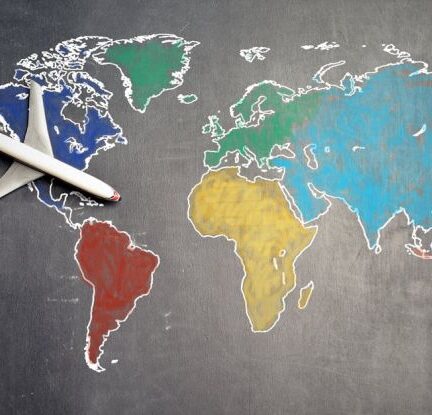Globalization, the interconnectedness of nations and cultures through trade, technology, and communication, has significantly impacted local cultures around the world. While globalization has brought about numerous benefits such as increased economic growth and access to information, it has also raised concerns about the potential homogenization and loss of unique cultural identities. In this article, we will explore the various impacts of globalization on local cultures and the ways in which communities are adapting to this phenomenon.
**Cultural Erosion and Homogenization**
One of the primary concerns regarding the impact of globalization on local cultures is the potential erosion and homogenization of unique traditions and practices. As Western ideas and consumer products spread globally, there is a fear that local customs and languages will be overshadowed or even lost. The rise of multinational corporations and global brands has led to the proliferation of a standardized, Westernized culture that can diminish the diversity and authenticity of local traditions.
**Cultural Hybridization and Adaptation**
Despite the challenges posed by globalization, many communities have found ways to adapt and thrive in the face of cultural change. Cultural hybridization, the blending of different cultural elements to create new forms of expression, has become increasingly common in a globalized world. This process can lead to the creation of unique art, music, cuisine, and fashion that combine elements of both local and global cultures.
**Increased Cultural Exchange**
One of the positive outcomes of globalization is the increased cultural exchange that occurs between different countries and regions. Through travel, international trade, and digital communication, people have greater access to diverse cultural perspectives and experiences. This exchange can foster mutual understanding and appreciation for the richness and complexity of the world’s cultural heritage.
**Preservation Efforts and Cultural Revival**
In response to the threat of cultural erosion, many local communities have taken steps to preserve and revitalize their cultural heritage. Governments and organizations around the world have implemented policies to protect traditional practices, languages, and artifacts. Cultural festivals, museums, and educational programs play a crucial role in promoting awareness and appreciation for local cultures.
**Challenges of Cultural Appropriation**
Globalization has also raised concerns about cultural appropriation, the adoption of elements of one culture by members of another culture without proper recognition or respect. In a globalized world, cultural artifacts and practices can be commodified and exploited for profit, leading to the marginalization of the communities from which they originated. It is essential for individuals and businesses to engage in ethical cultural exchange and support the rights and autonomy of local creators.
**Empowerment Through Cultural Expression**
Despite the challenges posed by globalization, many local communities have found empowerment through the preservation and celebration of their cultural identities. By asserting their unique traditions and values, communities can resist cultural homogenization and assert their place in a globalized world. Through music, art, storytelling, and other forms of expression, local cultures can assert their presence and influence on the global stage.
**Cultural Sustainability and Resilience**
In conclusion, the impacts of globalization on local cultures are complex and multifaceted. While there are legitimate concerns about cultural erosion and homogenization, there are also opportunities for cultural hybridization, exchange, and empowerment. By promoting cultural sustainability and resilience, communities can navigate the challenges of globalization while preserving the richness and diversity of their cultural heritage. Ultimately, the coexistence of local and global cultures can create a more vibrant and interconnected world where diverse voices and perspectives are valued and celebrated.
